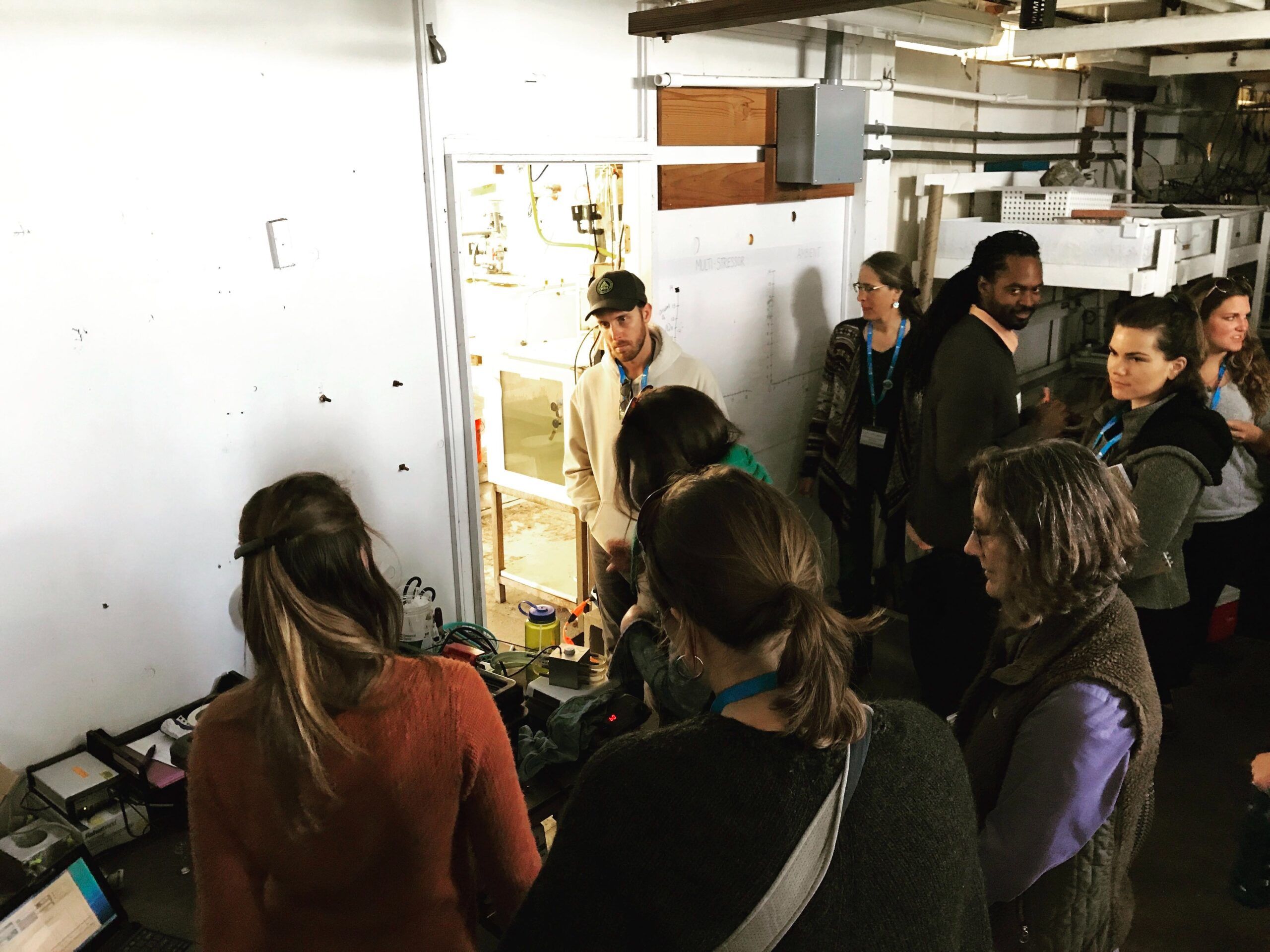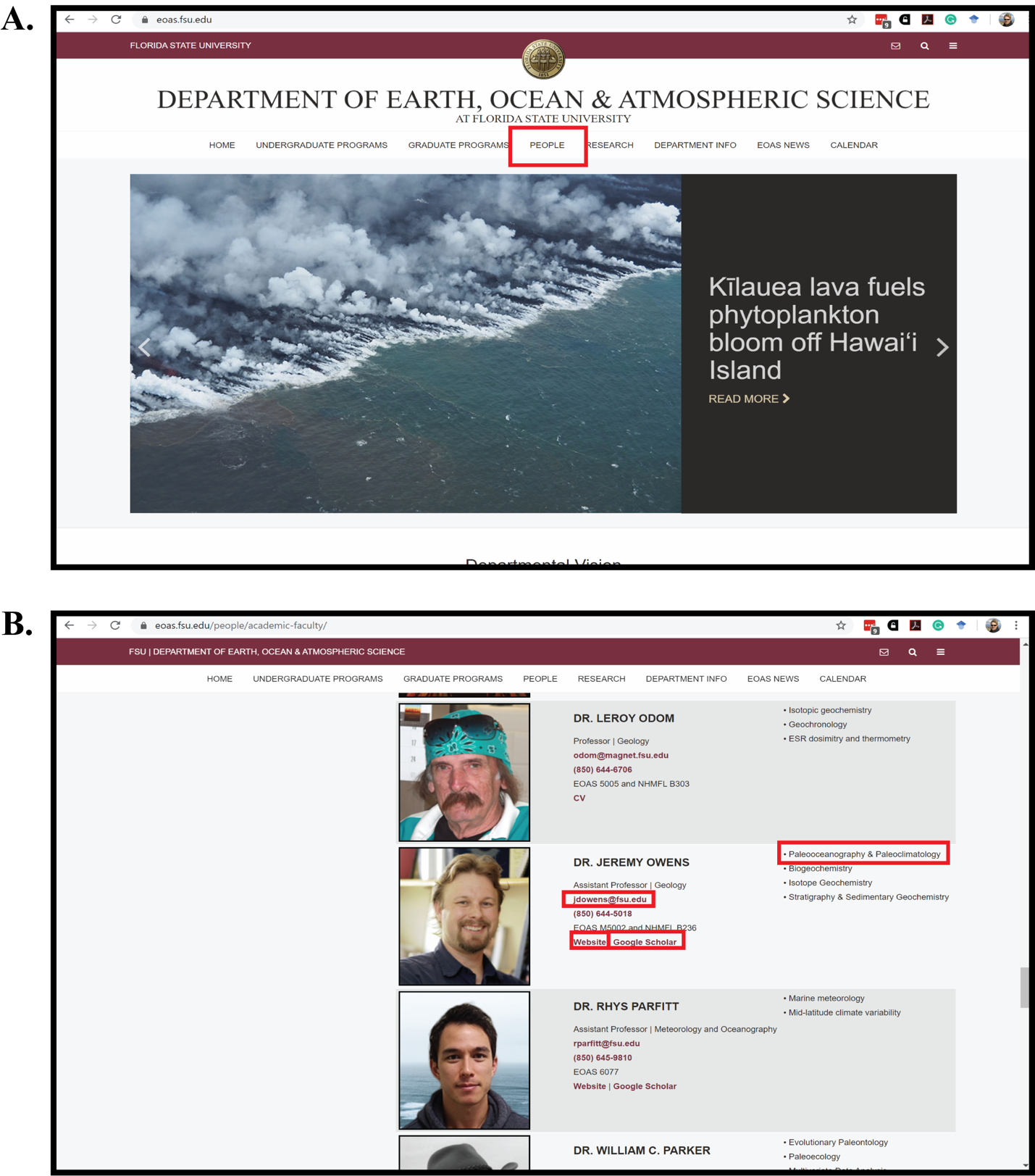Friendly neighborhood climate scientist

Have you ever wanted or even needed a climate science question answered but couldn’t find an answer and you wanted to speak with a scientist? Have you wanted to work with a scientist to do outreach but didn’t know how to contact someone? If you have ever had a need but felt uneasy about contacting a scientist because they might turn you down or you thought ‘they don’t do this sort of work’, we are here to help guide your search.
Many scientists see the same hurdles and would like to find great outreach and education partners. It is important to understand that many research granting agencies (e.g., National Science Foundation) require a ‘broader impacts’ section as part of the review process. As NSF puts it, this section is the “potential [for your research] to benefit society and contribute to the achievement of desired societal outcomes.” While this section cannot fund a scientific proposal alone, a poorly developed concept and executed section can sink a proposal. Thus, all (climate) scientists are always looking for innovative ways to partner for outreach (a.k.a. enhance ‘broader impacts’). This means that there will likely be a symbiotic relationship for both parties to collaborate beyond the good of educating the public – the reason for generating scientific knowledge.
While you may be turned down by some scientists, don’t let this get you down: most scientists are more than excited to speak to educators and/or any audience willing to listen. The big first step is where to start. (1) NNOCCI Science Fellows are a great (starting) resource because their expertise covers many climate science topics. If they cannot help, they may be able to steer you to the right people or places. You can search this list by expertise and region (select ‘profession’ or zoom in to specific regions). (2) Do a search of universities, colleges, and community colleges in your area/region to reach out. Climate scientists can be in many departments, as climate science research is very interdisciplinary. Thus, look for potential scientists by searching for ‘faculty’, ‘academic faculty’, or something similar (staff is typically administrative or technical support) in departments such as Atmospheric Science, Biology, Chemistry, Computational Science, Earth Science, Ecology and Evolution, Environmental Science, Geography, Geology, Interdisciplinary Science, Meteorology, Oceanography, Physics, in smaller colleges a general College of Sciences, or other likely possibilities as this list is not exhaustive. Usually, you can scroll through the faculty list to find their specialties or areas of research. Once you find a faculty member that seems to fit your required topic then generally you will find contact information on that website or maybe their own website. It is usually best to find a faculty member that is actively publishing in peer-reviewed scientific research journals to be sure they are knowledgeable with the latest research – this can be found by looking for publications either by looking at their personal website, curriculum vitae (CV), or departmental listing. (3) In your region, there are likely scientists that give outreach talks and are willing to partner with another outreach institution. Thus, discussing your outreach interest with other host outreach institutions or coordinators in your area will be helpful. The researchers might be willing to discuss new topics, more suited for your audience, provide names of other experts, or help make a contact.
Now what? Do I really have to make a ‘cold’ call or email? Yup. Generally, email works best, at least to start and if you don’t get a response then a phone call could help move the conversation forward. How do I make sure they read the email and respond? Generally leading with the opportunity to partner with an outreach expert or institution will open the door or why your question is important to communicate with the public – providing the scientist with a clear goal of how this may be mutually beneficial. Then make the ‘ask’ very clear (e.g., 30-minute speaking engagement opportunity to discuss ocean acidification issues). Follow with a second paragraph providing your institution’s goals/mission and how a partnership will be beneficial to all parties. One example might be continued dissemination of scientific research through the outreach institution when submitting grants (connecting to the goals of engaging with gender, ethnic, and socio-economically diverse groups from rural and urban areas).
There is no magic bullet to engage with a person, including scientists. Many senior scientists are already overcommitted thus they are typically more difficult to engage but you can ask to speak with their graduate students or chose earlier career scientists (graduate students, postdoctoral researchers/fellows, or assistant professors). Additionally, this information provides some background on the benefits for scientists and how they might utilize a partnership. It may seem cynical that someone must have a benefit beyond educating others. However, there are many time constraints for many academics and these partnerships are always mutually beneficial.
Figure 1. An example website that provides a guide to searching for an academic climate scientist. Part A documents the home page for the Earth, Ocean and Atmospheric Science Department at Florida State University that requires linking to ‘Academic Faculty’ from the ‘People’ header as shown by the red box. Part B highlights the list of expertise and contact information in the red boxes.

More Blog Posts
 To Frame Climate Change, Lead with a Researched Value—Not a “Rogue” OneTo Frame Climate Change, Lead with a Researched Value—Not a “Rogue” One January 20 2017 This is the sixth post in a series about framing ocean and climate change. So, you want to motivate the public to take action to address climate and ocean change? One of the most important communications moves you can make is to open with a broad statement [READ MORE]
To Frame Climate Change, Lead with a Researched Value—Not a “Rogue” OneTo Frame Climate Change, Lead with a Researched Value—Not a “Rogue” One January 20 2017 This is the sixth post in a series about framing ocean and climate change. So, you want to motivate the public to take action to address climate and ocean change? One of the most important communications moves you can make is to open with a broad statement [READ MORE] Attention Environmental Advocates: Avoid ‘Cute Critters’ and other Communications TrapsAttention Environmental Advocates: Avoid ‘Cute Critters’ and other Communications Traps August 09 2016 This is the second in a series about framing ocean and climate change. A fuzzy polar bear cub against an expanse of melting snow. A seal pup slicked in oil. A newborn orangutan clutching its mother’s breast as she swings through a disappearing [READ MORE]
Attention Environmental Advocates: Avoid ‘Cute Critters’ and other Communications TrapsAttention Environmental Advocates: Avoid ‘Cute Critters’ and other Communications Traps August 09 2016 This is the second in a series about framing ocean and climate change. A fuzzy polar bear cub against an expanse of melting snow. A seal pup slicked in oil. A newborn orangutan clutching its mother’s breast as she swings through a disappearing [READ MORE] NNOCCI Climate Science FundamentalsNNOCCI Climate Science Fundamentals by Megan Ennes, July 15 2020 In this blog, we talk about some of the basics of climate change. An understanding of climate science is the foundation of climate communication and action. Weather Versus Climate One of the most common misunderstandings when talking about climate change is the difference between [READ MORE]
NNOCCI Climate Science FundamentalsNNOCCI Climate Science Fundamentals by Megan Ennes, July 15 2020 In this blog, we talk about some of the basics of climate change. An understanding of climate science is the foundation of climate communication and action. Weather Versus Climate One of the most common misunderstandings when talking about climate change is the difference between [READ MORE] Museums Mobilizing Climate ActionMuseums Mobilizing Climate Action Billy Spitzer, August 06 2018 (Excerpted from a commencement speech for the Harvard Extention School Museum Studies Program) The Role of Museums In Tackling Climate Change At the New England Aquarium, I spend most of my time working at the intersection of museums and sustainability. About 10 years ago, we realized [READ MORE]
Museums Mobilizing Climate ActionMuseums Mobilizing Climate Action Billy Spitzer, August 06 2018 (Excerpted from a commencement speech for the Harvard Extention School Museum Studies Program) The Role of Museums In Tackling Climate Change At the New England Aquarium, I spend most of my time working at the intersection of museums and sustainability. About 10 years ago, we realized [READ MORE] Climate Emotions: Helpless Or Hopeful?Climate Emotions: Helpless Or Hopeful? by Heidi Zamzow, April 17 2019 With the recent IPCC warning that we may have perhaps a dozen years before we encounter severe and irreversible impacts of climate change, it comes as little surprise that a recent survey* in climate communications research indicates 7 in 10 people in the U.S. are concerned [READ MORE]
Climate Emotions: Helpless Or Hopeful?Climate Emotions: Helpless Or Hopeful? by Heidi Zamzow, April 17 2019 With the recent IPCC warning that we may have perhaps a dozen years before we encounter severe and irreversible impacts of climate change, it comes as little surprise that a recent survey* in climate communications research indicates 7 in 10 people in the U.S. are concerned [READ MORE]